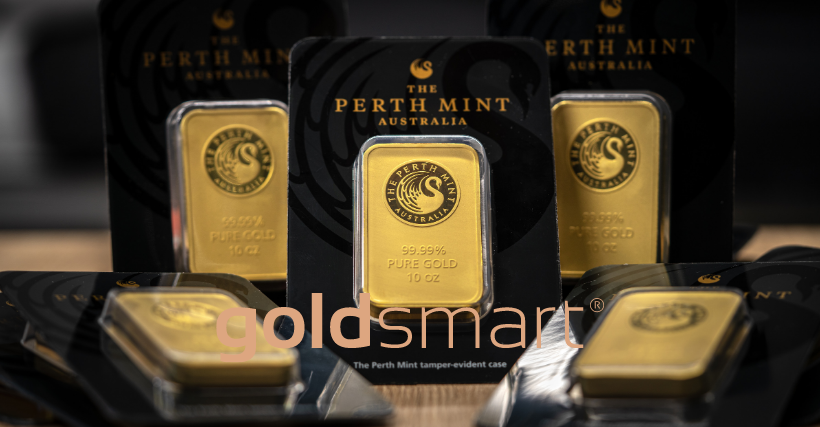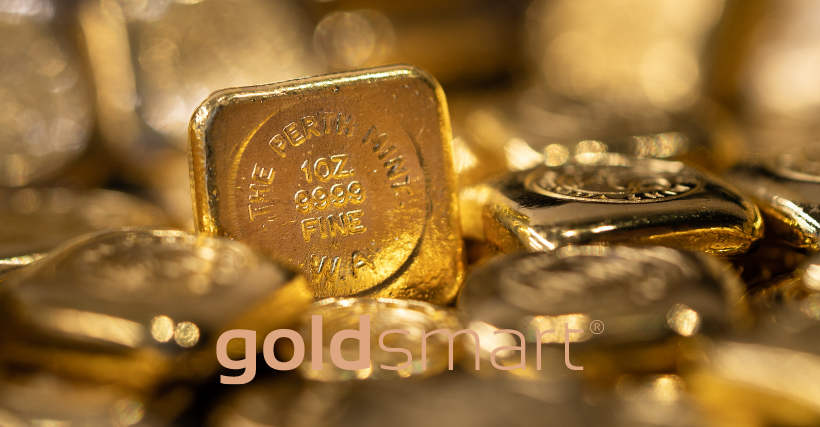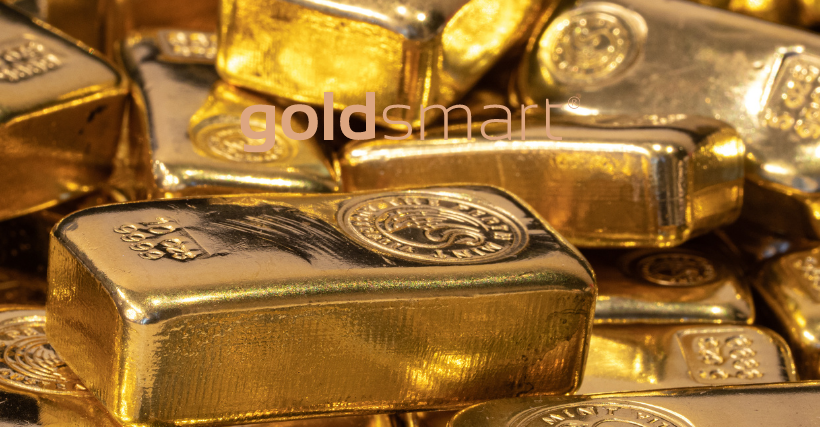
If you’ve been watching the TV and happened to see a commercial offering the means to sell your unwanted gold to a business named Gold Smart, it wasn’t a joke. It’s real. Gold Smart offers regular Kiwis like yourself one of the leading gold buyer channels available in New Zealand with one of the highest records of trust, reliability, fair pricing, and safety all in one package. Designed with a professional approach to second-hand gold buying from regular consumers from all backgrounds, as well as being open and transparent in every transaction with every issue and detail, Gold Smart has risen to the top of choices available where to sell unwanted gold. And seeing them on a commercial is just the tip of the iceberg. Selling your gold doesn’t have to be an esoteric chase on the Internet for information and how-to’s. Just like in the commercial, Gold Smart makes the process easy, comfortable, and fun as well as educational.
Taking Advantage of 2020
Right now, selling personal gold that you no longer want because it’s broken, missing a pair, out of fashion, or just not desired anymore is a really good idea. Since 2013 the spot value of gold has risen tremendously, so even if you had bought the particular gold piece yourself, there’s a very good chance the value currently is well past whatever was paid for it originally. In fact, the value may even have doubled if the particular gold item has been held for longer than a decade. And one of the easiest ways to liquidate those unwanted gold items, whether they be jewellery or accessories, is to work through a professional buyer like Gold Smart who is designed to handle both small and large personal lots on a regular basis. Given how streamlined the process is, there probably hasn’t been an easier method in New Zealand at least until now.
Why Sell Gold Instead of Holding Onto It
Let’s be realistic. Exactly what will unused, unwanted gold be used for in the future by you? Are you holding onto the items to give away as an inheritance? This is understandable, but what often happens, in reality, is that recipients typically sell most of what they are gifted and do so to take advantage of the cash from the sale. They are typically not attached to inherited items and where there is value, they will frequently liquidate a gift to use the funds for what they really want to do. So, if you want to leave an inheritance of value, it may be a better idea to sell your gold and set up the money itself in a trust or a fund that grows while it waits to be gifted in your estate. That would be a smarter approach, it would increase the value of the money over time, and your beneficiaries would actually appreciate an estate gift they can readily use for a home downpayment, a car, or an educational opportunity instead.
Another reason people hold onto unwanted gold is in the belief that they themselves can eventually put it all together and have the items melted and formed into a new item, such as a pair of rings. While this idea is rather creative, it is unlikely to happen without great cost. One would have to pay for all the smelting, crafting, and molding. It would a better idea to simply sell the gold one has, get the value, and then go shop for a pair of rings that are already crafted in a style desired. It’s less of a mess, challenge, and a lot easier to make a reality, such as a set of new wedding rings to market a 25th anniversary, for example.

What to Sell
Generally, anything that is constructed of solid gold in any form will work. That means the item, whether it’s a coin, jewellery, accessories, or nugget, needs to be entirely gold. It can be a lower or higher quality of gold, but the items cannot be gold-plated. In truth, gold-plated items are not gold at all. They are instead some kind of base metal like steel, copper, lead or similar with gold chemically bonded as a thin layer onto the base metal. This gives the appearance of gold but without the actual cost, which is a common selling point for costume jewellery, for example. It looks attractive and fancy from a distance, but there’s no issue if it breaks or gets lost because the value was minimal. In the same context, however, it cannot be relied on for selling used gold either because it has nothing to do with the precious metal. Every once in a while there’s a consumer who has been under the impression that a piece of jewellery was in fact gold, and it turns out with basic testing just to be gold-plated. That usually ends up being an awkward moment, so it’s well advised to avoid this problem from the start.
The best unwanted gold to sell has been marked. With bullion coins and bars, for example, they are issued by a government mint or similar, and stamped with original markings identifying what they are, their official weight, and issuance. When it comes to jewellery, fine pieces will also have stamps, engravings, and hallmarks identifying their quality and make. These can come in different forms. Sometimes, they will have a series of numbers starting with a 9. Other times the mark will have two numbers and a “k” next to it, such as “22k”. These types of codes identify the quality of gold in the piece, such as 12 carat or 22 carat gold. The higher carat is, the more valuable the gold item is as it is closer to full purity. True gold nuggets, for example, range from 20 carat to 24 carat in purity, being the raw gold itself before smelted and made stronger in an alloy with another metal.
If, on the other hand, an item has the letters “GF” or alternatively “GP” that’s a sure sign the item is gold-plated. Not all gold-plated items will have this labeling, so don’t depend on it to be present. However, if visible and clearly stamped, then that piece is a done deal and not worth bothering with. Sell it online via eBay or something similar instead.
Remember, second-hand gold comes in all types of shapes and sizes. It’s not just limited to fine jewellery. Gold has been and continues to be used with flatware, mementos, commemorative medals, pens, watches, plaques, and more. You may not be as lucky as a certain Venezuelan village this year with gold washing up on their beach, but it’s worth a good look through the house to make sure something wasn’t missed stuffed in a drawer or box somewhere fated to sit for years because it was forgotten about.

Researching What You Have
There are a lot of good references available to get a better idea about what you might have as well, especially online and with the Internet. For example, if you find you have a box of coins in your home, including a gold one, you may very well have a valuable find. More than once, someone has found a gold guinea that was worth a few dollars when fully evaluated. These were quite common in earlier centuries and issued throughout the Commonwealth before the 20th century.
A good rule of thumb when you do identify the gold involves is as follows. If the gold is 12 carat or 12k that’s essentially a 50 percent purity level. So, the starting point for value would be the spot value of a troy ounce at 50 percent. However, most scales have nothing to do with Troy values, so you would need to convert the value of standard scale weight to Troy values. That conversion is essentially as follows: one standard ounce equals 28.35 grams, while a troy ounce is 31.1 grams. Use these two values to get a rough of the weight and then measure it by the quality. So, if a jewellery piece were 283.5 grams in weight, that would be 9.116 troy ounces (283.5 grams divided by 31.1 grams). If the item is 12 carats, then at spot price, let’s assume $1,800 USD per troy ounce, it would $900 USD (remember, its 12 carats which is 50 percent of 24 carats) times 9.116 troy ounces, giving a market value of $8,204 USD approximately, or $11,517 NZD. This does not mean you automatically get that amount big dollar amount for the gold item. Instead, a professional gold buyer will buy the item at a markdown value to accommodate his business costs and a margin for profit. However, the method above gives you a ballpark idea of how to evaluate your gold instead of selling blindly.
You can expect that most fine jewellery, especially rings, will be lower carat values. The gold is mixed with another metal to make it stronger since gold alone is a very soft material that can bend and break. Typically, fine jewellery will be in the range of 12 carats to 18 carats in gold purity. However, what often happens is that people lose their paperwork and have no idea what gold is in their jewellery, especially if it has no identifying hallmarks. A professional appraisal can solve this problem. Labeled and marked jewellery will also tend to sell at a higher value simply because the premium quality is known and clear; this is the case with jewellery from Tiffany & Co. for example, as well as government-issued bullion coins.
Also, don’t forget, some gold items have collectability value in addition to their base gold worth. This is common with Rolex watches as well as bullion coins with older dates on them. Additionally, certain types of vintage jewellery can command a very high value in collectability as well, especially if the famous maker is no longer in business. When you find you have an older item in your collection, it may be worth the trouble to have it appraised versus just weighed for gold value alone.

Where to Sell Your Gold
Obviously, Gold Smart is not the only channel where New Zealanders can sell their gold to. In fact, there’s a number of businesses as well as private parties one can use who would be glad to buy second-hand gold. That doesn’t mean that these channels are the best choices. Hands down, pawnshops and payday loan offices are some of the worst places to sell to if you are hoping to get a reasonable value for your used gold. Both are geared to maximize their profit margin and offer only the lowest cost possible, assuming people coming to them are already hard up for cash and need a quick payout. This kind of dilemma works in this kind of a business’s favor. Secondly, many assume a local jeweler can be a good option as well.
Most jewelers are not geared for bulk gold and tend to have to resell it to someone else who is a gold consolidator. In these cases, the jeweler only benefits from the transaction by the profit margin between what he pays versus what the consolidator provides. That works against the personal seller as well.
Finally, there are the private buyers, usually identified by only being in town for a few days, operating out of gold parties at someone’s home or out of a hotel room or hotel conference room for a few days. Similar to the pawnshops, they wave ready cash for sellers and offer very marked down prices for the gold being sold.
Professional gold buyers like Gold Smart and others do not resort to pressure tactics or quick cash. They take a well-established process for buying gold after it is evaluated with the customer and the full price value is known. Because these businesses are looking for a long-term relationship, the quick profit margin does not matter so much. Instead, they offer a fair price, with a markdown to make it profitable, and the seller gets a higher value for the second-hand gold than through the above alternatives. The process may take a bit longer, but it is far more valuable and rewarding for the seller.
For your own safety and risk, do not consider online platforms such as Craigslist or eBay as viable channels for selling your gold. These digital avenues are flooded with scammers working the auction sites and ads every day for people who try to be trusting and make themselves vulnerable. Story after story has happened internationally with people sending money and getting nothing in return, or people sending their jewellery, thinking they got paid, and finding out the money was reversed and they lost both. It is simply too easy to steal from someone online because these platforms don’t really have much of an incentive to actively protect the seller, especially one with a brand new account. Even professionals have been duped by gold scams recently, like the big Kingold bar fraud this year.
If you are going to insist on selling your gold online, research your value first before posting. Look for a sale that is in your favor and make sure you get paid first. Don’t assume just because it was an electronic payment that you’re safe. Chargebacks are a known problem as people pay and then tell their payment processor it was a fraud. The payment money disappears from your account, the buyer has everything. Insist instead on post office issued money orders sent through the old-fashioned mail. Believe it or not, this is the most protected way to get paid before sending any of your gold anywhere.
Not the First, But Probably One of the Best
Again, Gold Smart is not the only buyer of gold in New Zealand, and we encourage people to learn and know the market instead of just picking the first buyer that comes along. However, we do believe what you will find is that Gold Smart provides one of the best values to sellers, insists always safety and transparency, and will never pressure you into a sale, period. Folks tend to be so pleased with their Gold Smart transactions, they become regular customers, knowing full well that they are working with one of the most established gold buyers in New Zealand for a reason. Find out the difference yourself. Give us a call or email for your first or next gold sale, and let us evaluate your items for you. You’ll be surprised how easy Gold Smart makes gold selling today.